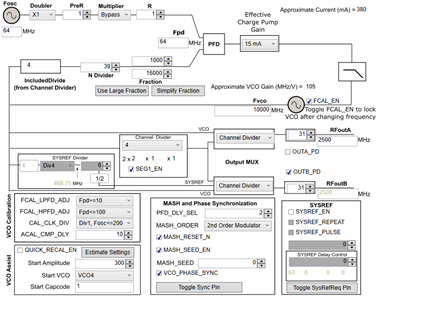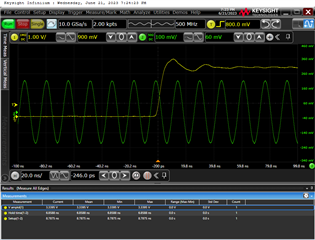Hi,
I am currently working on the LMX2594PSEVM board and am having problems synchronizing the two PLL's externally.
For testing purpose I use TICS to control the PLL's. To messure the phasedifference between the two Signals I use a VNA (www.rohde-schwarz.com/.../1EZ82).
The two PLL's are both locked and working fine. The settings in TICS are as follows:

From the datasheet, I read that these settings fall under SYNC Category 3 for this use case.
But I get a strange behavior, when I send the SYNC pulse multible times (Setup- and Hold-time are above 3ns... so basically okay). Based on my current understanding, the phase relationship of the two output signals should not change when I send the pulse multiple times. However, that is exactly what is happening. In the current settings, there are two angles that (seemingly) change randomly. For example, like this:
1. Pulse: 43°
2. Pulse: 43°
3. Pulse: 36°
4. Pulse: 43°
5. Pulse: 36°
6. Pulse: 36°
...
For my use case, I require a fixed phase relationship of the PLLs after the SYNC.
Did I do something wrong with the TICS settings or did I misunderstand the whole sync feature?
Many thanks
Thomas


